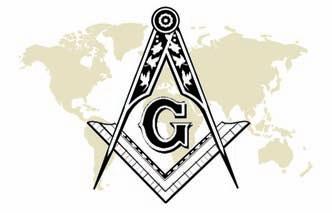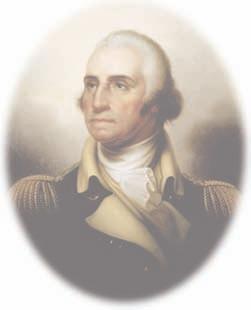G E O R G E W A S H I N G T O N , E A R LY A M E R I C A N F U T U R I S T
George Washington, Early American Futurist
Stewart Miner,
Grand Secretary Emeritus
Remarks of MW Stewart W. Miner, Grand Secretary Emeritus, on the occasion of the Reenactment of Laying of the Cornerstone of the Washington Monument, on July 18, 1998
O
n this occasion, when we are assembled to celebrate the 150th anniversary of the laying of the cornerstone of this magnificent monument, erected in tribute to and in memory of the Father of our country, it is appropriate that we briefly reflect on the nature of the America in which Washington lived, on his response to the issues of his day, and on the legacy which he decreed to us, the citizens of this great country. The character of this nation, like that of all other nations of consequence, has been established, in large part, by the work, the words, and the wisdom of its leaders. In that respect our country has been richly blessed, and never more so than during the lifetime of George Washington. By virtue of decades of self sacrifice and selfless service, during which he solicited the assistance of able and like-minded men, Washington’s work and words, tempered always by calculated measures of wisdom, led his colonial compatriots first to demand and then to accept a new and revolutionary concept of nationhood. Washington lived and worked at a time in history when long established values — social, economic, and political — were being subjected to unparalleled scrutiny and challenge, here in America and increasingly throughout the civilized world. During his lifetime, extending from his birth in 1732 until his death in 1799, a scant 67 years, his America suffered through scores of trials, all associated with the winning
The Voice of Freemasonry
10
of freedom, the correction of a multitude of social and political wrongs, the development of a sense of national unity, and the creation — after decades of deprivation, dissent, and uncertainty — of a federal government. WASHINGTON’S WORKS By his workmanlike response to the challenges of his day, Washington distinguished himself. In his responses he consistently demonstrated that he was an uncommon man; a man of imagination, resolution, and action; a man who opted always to manage, and not to avoid, the inevitable forces of challenge and change. In sum, by virtue of persistent work and wise words, Washington established himself not only as a patriot, but more importantly, as an early American Futurist. His interest was always focused on the tomorrow of time. Washington was looking ahead, for example, when as a very young man, shortly after his 16th birthday, he journeyed into the unknown of the frontier to survey the holdings of Lord Fairfax along both sides of the Blue Ridge in the west of Virginia. In this mission he participated in the creation and recording of primary points of reference that formed the basis for the subdivision of land and property from that day to this. By his surveying, he served the future. Washington was looking ahead when he defended his country as a soldier and, in due time, as the Commander-in-Chief of the Continental Army. During his years in the military, Washington experienced both the agony of defeat and the bliss of victory, but after a battle was concluded, win or lose, he never looked back, convinced that strife, once finished, was but the prelude to challenge anew. By his military service, he served the future.







